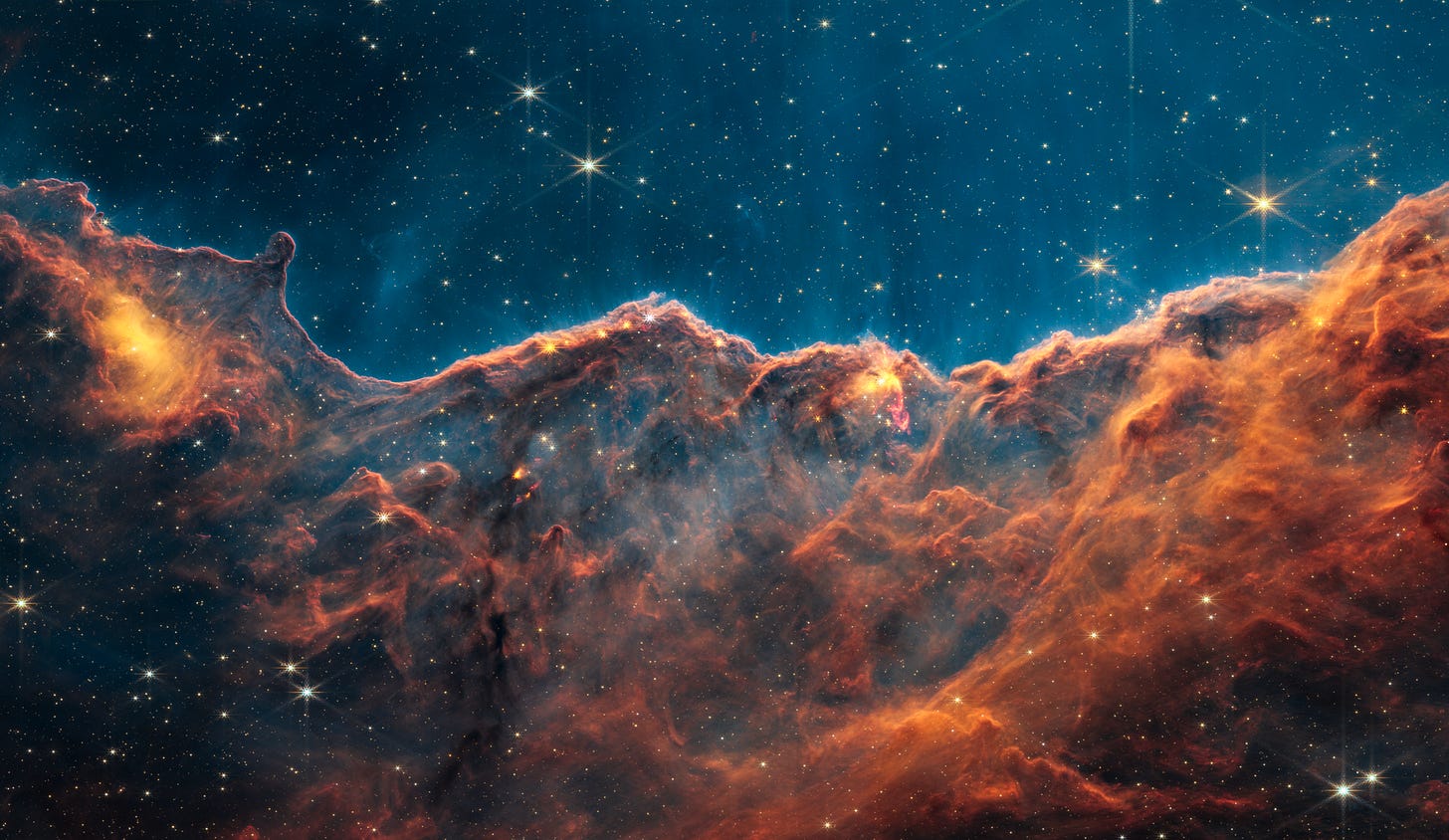Aim for the Stars?

“They can put a man on the moon quite easy
While people here on earth are dying of old diseases.”
—Black Sabbath, “Wicked World”, 1970
Given the vast resources, workforce, technology, and ingenuity required to land humans on the moon, it was always an exaggeration to say that putting a man on the moon was easy. Still, it’s a measure of how far society has regressed under capitalism, even if it has advanced in other areas, that while people here on earth continue to die of old (and new) diseases, ruling classes in the United States, Russia, and Europe are no longer capable of putting a man on the moon.
The capitalist regime in China has talked about landing humans on the moon by 2030, and they might yet do so. But consider that less than 66 years passed between the first controlled flight of a heavier-than-air aircraft by the Wright Brothers at Kitty Hawk in 1903, and Apollo 11’s pioneering trip to the moon. 2023 will mark 54 years since humans first walked on the lunar surface, and we’re still struggling to match the achievements of half a century earlier.
It’s no surprise that capitalist governments are no longer investing in human space exploration to the same degree they did in the 1960s. After all, there are so many more important things to spend money on, starting with endless war. (Admittedly, the space race was the direct result of the Cold War between the United States and the Soviet Union.) Why expand the frontiers of human understanding when you can spend untold billions of dollars for a proxy war in Ukraine? The repeated collapse of the global financial system has also led to governments repeatedly bailing out banks to the tune of trillions of dollars.
Growing up in Canada, I often heard the Canadarm being hailed as a point of national pride. The robotic arms were seen as Canada’s major contribution to NASA’s Space Shuttle Program. The original Canadarm cost $108 million to develop from scratch, or $349 million today adjusted for inflation. Compare that to the ballooning cost of the Canadian government’s big project today: the Trans Mountain pipeline expansion, which the company’s most recent estimate said would cost taxpayers $30.9 billion. Supporting space exploration? Pffft. We’ve got a climate crisis to accelerate.
Predicting the future is notoriously difficult. In the 1950s, people predicted we would have flying cars and personal jetpacks by the year 2000. The very title of the film 2001: A Space Odyssey suggested humans would be on our way to Jupiter by the turn of the millennium. But when I was a kid, it seemed all but certain humanity would continue to expand its horizons by sending people further and further out into space. The most obvious candidate for the next great step forward in human spaceflight was a mission to Mars. That hope was bolstered by repeated promises by U.S. presidents to land people on Mars within a couple decades or so. Of course, it was always easy for presidents to make promises that committed to them to nothing, while putting the burden of achievement on their successors.
On the other hand, given the vast resources required to send humans to Mars, and with the benefit of (I hope) maturity and experience, I have to take a similar attitude to Black Sabbath today. As entrancing and romantic as human space exploration is, the fact is that there was immense poverty and suffering in 1969, and there still is now—arguably more. Any moral society has an obligation to ensure the basic needs of all are met on earth in terms of food, housing, health care, education, and so on before funneling resources into a human mission to Mars or the farther reaches of the solar system. The accelerating global climate emergency has also made the rapid transition to sustainable energy a far more pressing need.
Capitalist society, of course, is not based on the satisfaction of human needs, but the maximization of private profit—with most wealth being funneled upwards to a small number of obscenely rich individuals. It isn’t just that capitalists aren’t spending money to further human space exploration. They aren’t spending money on anything that would benefit society as a whole. We have enough wealth to meet the needs of everyone on earth, and to further the exploration of space. For example, we can already produce more than enough food for all. The problem in this case is that the means of production are owned by a small number of wealthy parasites and geared toward private profit rather than social need, creating artificial hunger.
The fact that space exploration has stalled is just one more example of how capitalism is holding humanity back. Capitalists themselves are proving just how inferior the profit motive is in this area. It’s almost a running joke now how Elon Musk’s much-touted SpaceX manufacturing company keeps producing rockets that explode or crash shortly after launch. In Defence of Marxism writes about how the profit motive for SpaceX guarantees inefficient and wasteful production:
The evident failure of the launch… is of no concern to SpaceX. Garrett Reisman, a senior adviser to the company, described the explosion as “a classical SpaceX successful failure.”
This strategy – which the New York Times describes in a tragicomic manner as “fail fast, but learn faster” – ostensibly allows SpaceX to develop rockets sooner by finding out their flaws through repeated testing, rather than waiting longer to build a rocket that actually functions. In short, this is a justification for SpaceX to cut corners and use cheaper and simpler designs than traditional NASA rockets. [….]
Reisman went on to describe the benefits of SpaceX’s cavalier strategy as the “embracing of failure when the consequences of failure are low… Even though that rocket costs a lot of money, what really costs a lot of money are people’s salaries.” Better to “successfully fail” than employ “a large team working for years and years and years trying to get it perfect before you even try it.”
Here we see the fundamental logic of Elon Musk and his team. $3 billion sounds like a lot to develop a rocket that explodes after four minutes, but it’s nothing compared to actually having to pay your workers to do the job properly.
Musk’s fellow billionaire Richard Branson has also attempted to launch rockets to similarly embarrassing results. The record of private enterprise in human spaceflight has been abysmal failure on all fronts.
There’s one other point to highlight when it comes to the stalling of human space exploration: how it serves as a microcosm for the elimination of hope for the future under capitalism. How many of us heard some variation of parents or teachers telling children to “aim for the stars”? Especially in the capitalist triumphalism of the 1990s, children were assured they could do anything they put their minds to.

We saw that turn into its opposite in the years after the global financial collapse of 2008-9 and the Great Recession, with the growth in popularity of “snowflake” as an insult, predominantly towards youth. Any person who expected or demanded better was derided. In a system no longer capable of moving society forward, the ruling class always encourages anger and cruelty towards those at the bottom whom the system has failed, rather than those at the top responsible for the system’s failures. People incapable of envisioning a better society react with sneers and derision towards those who do.
Unfamiliar readers probably won’t be surprised to learn I’m a fan of Star Trek. The appeal of Star Trek has always been similar to that of socialism: an optimistic vision of the future in which humanity has eliminated want and prejudice, where technology has made it possible to explore the stars, and where every person is free to develop themselves to their full potential. “The acquisition of wealth is no longer the driving force of our lives,” Jean-Luc Picard memorably told a woman from the 21st century in Star Trek: First Contact. “We work to better ourselves and the rest of humanity.” Add the famous words of The Communist Manifesto, “From each according to their ability, to each according to their need,” and you have a pretty solid summary of the guiding principles of socialism.
I no longer believe I’ll see a human mission to Mars in my lifetime. Hearing that might have shocked me as a child. But as an adult, I realize that the real challenge we need to confront first are our problems on Earth: to ensure that everyone has all their basic needs met. We have far greater priorities at home. The good news is that while scientists are still debating whether we are capable of getting people to Mars, we are already capable of making sure everyone has enough food to eat, has a good home, has access to health care and education. The wealth exists. The technology exists. But the only way to achieve this goal is through socialism, and I live each day with the conviction that we will see socialism in our lifetime.
“The sky calls to us,” Carl Sagan wrote. “If we do not destroy ourselves, we will one day venture to the stars.” The next great chapter in exploring our universe remains to be written. To get there will require a total transformation of our lives on Earth.





